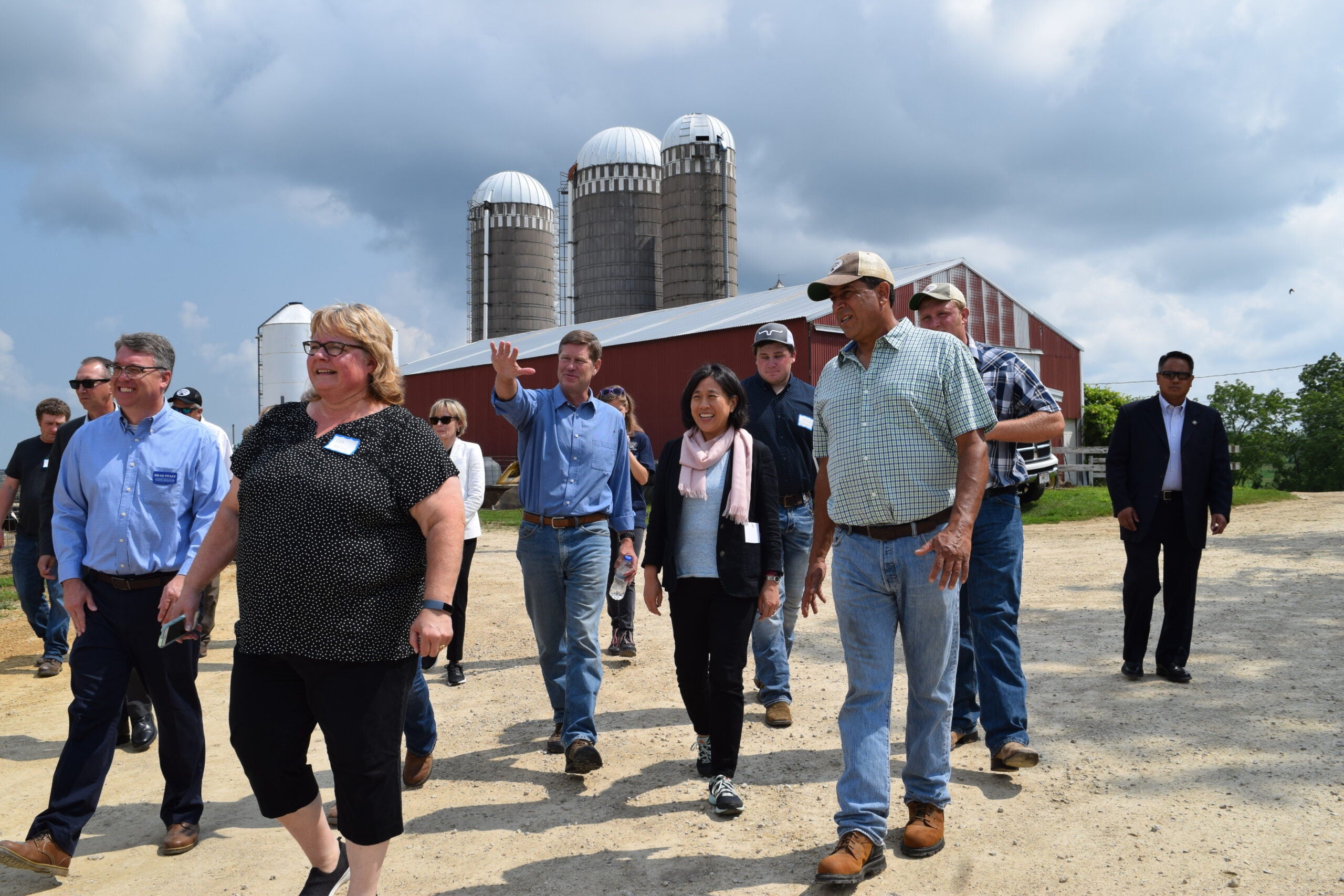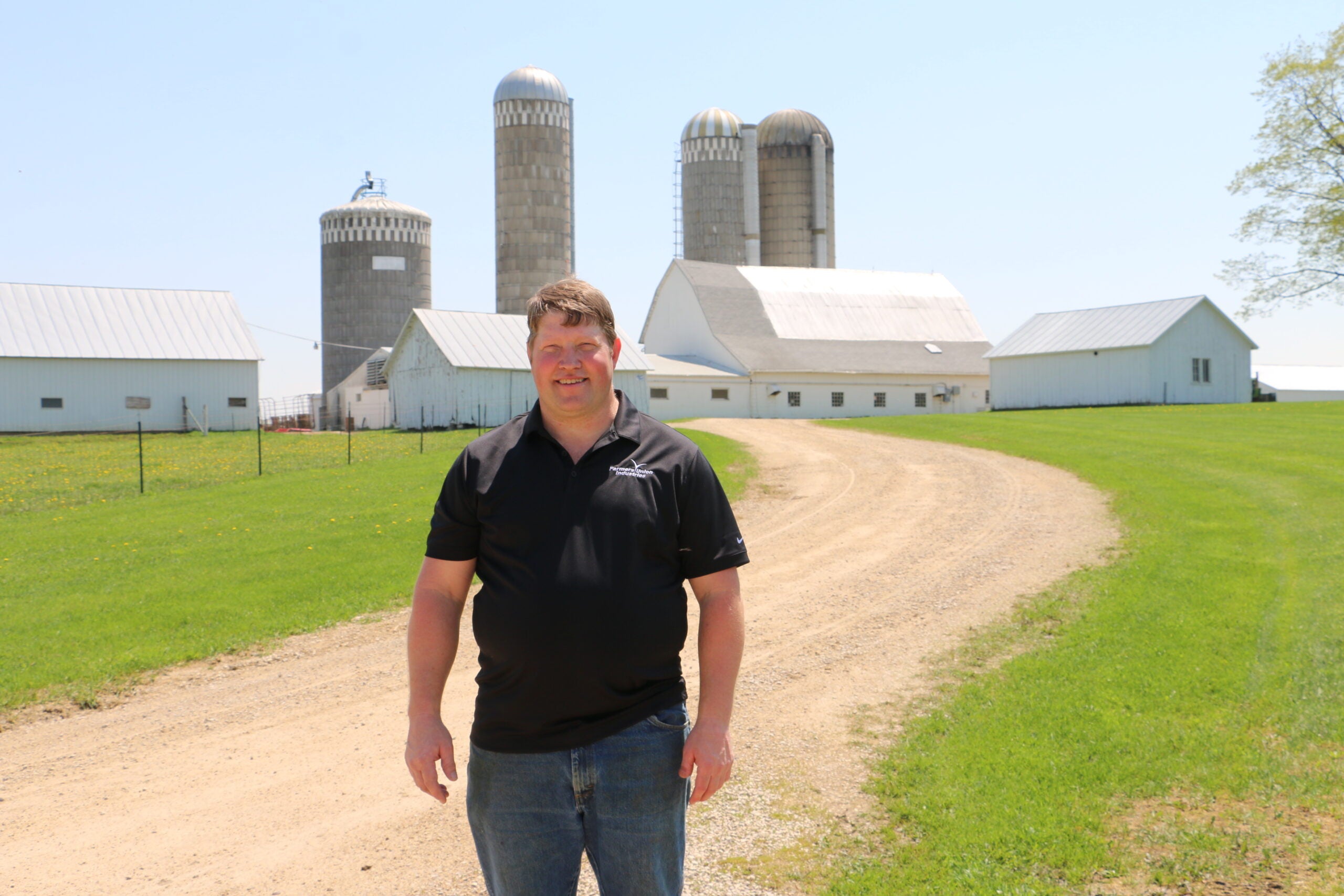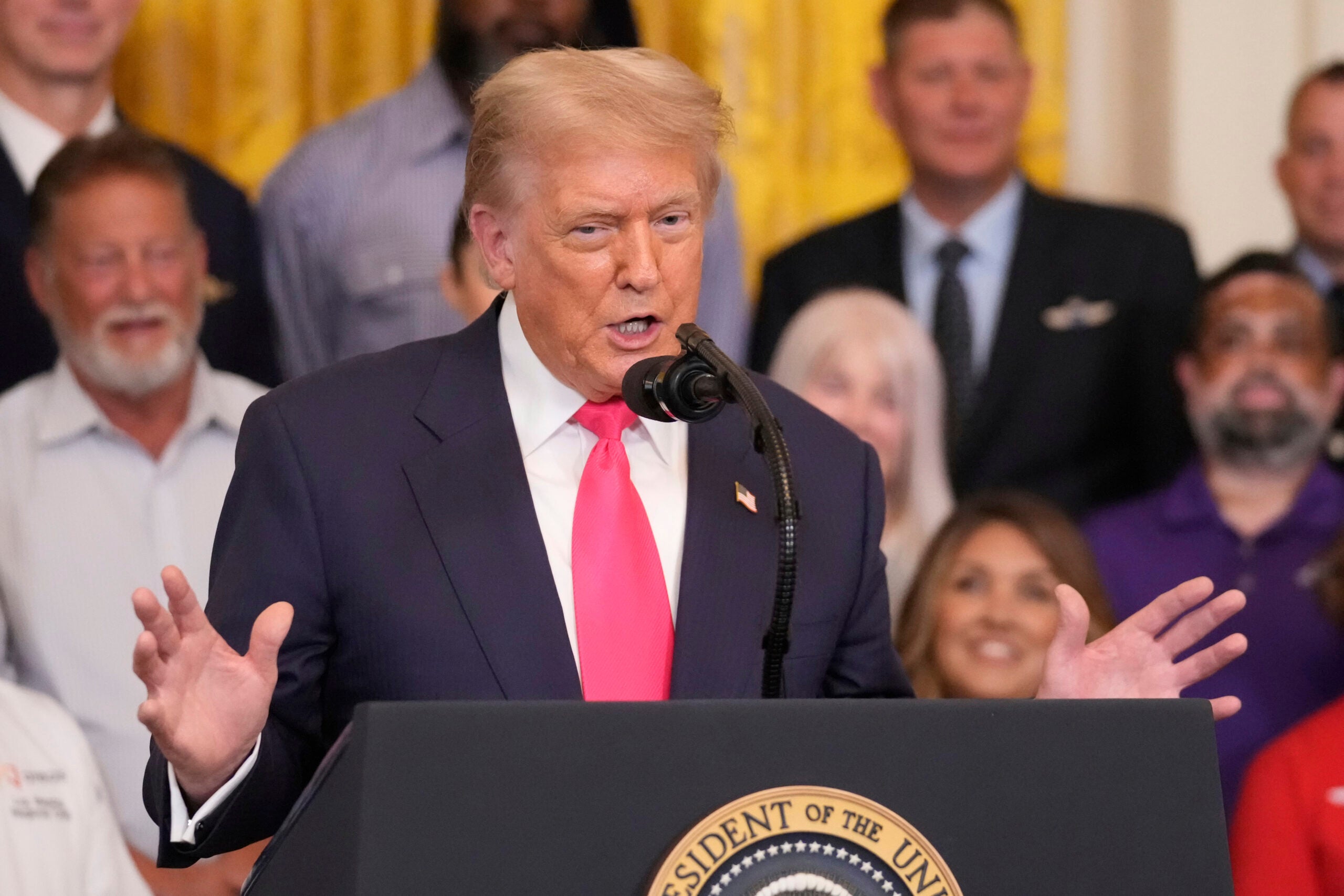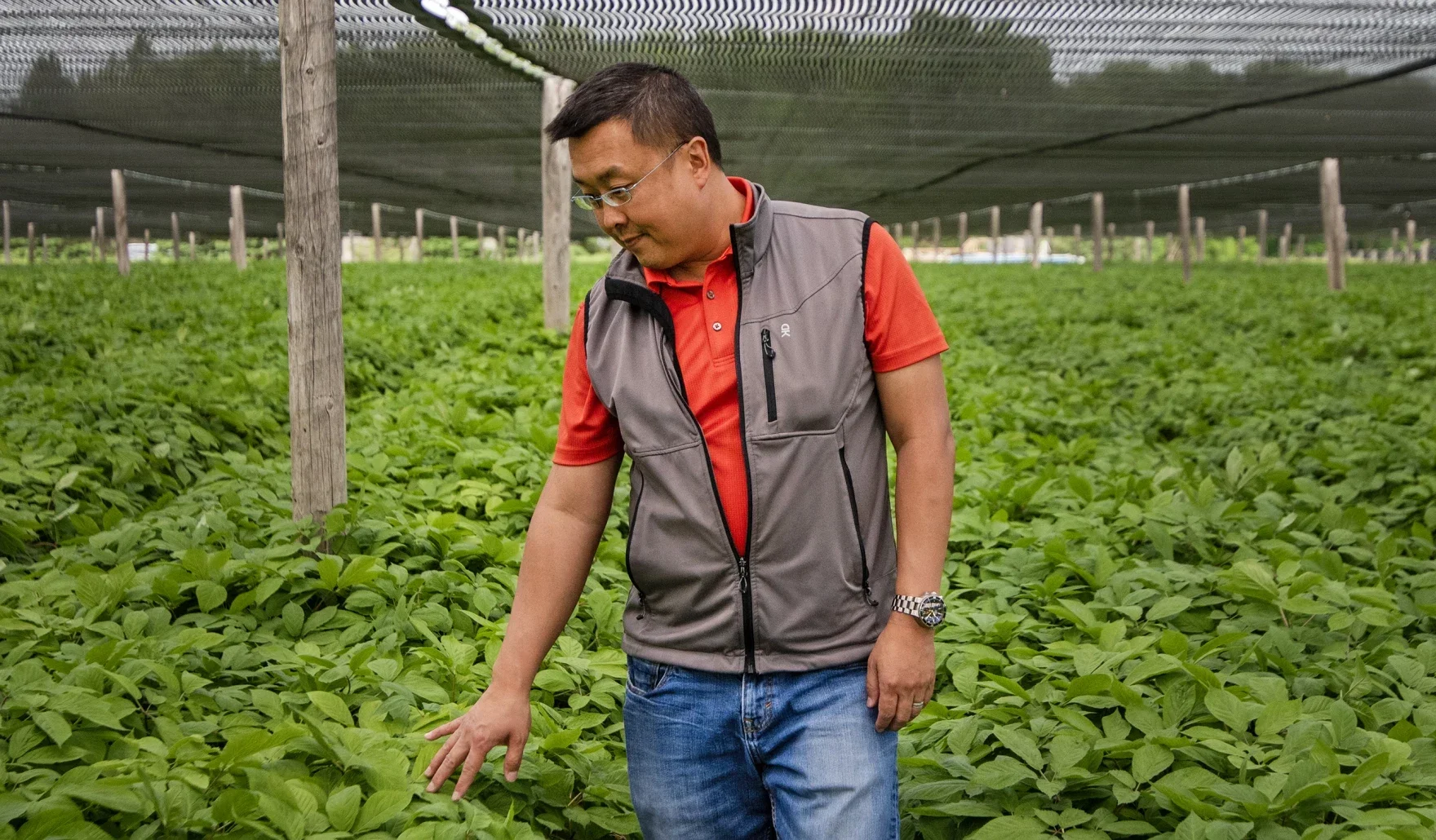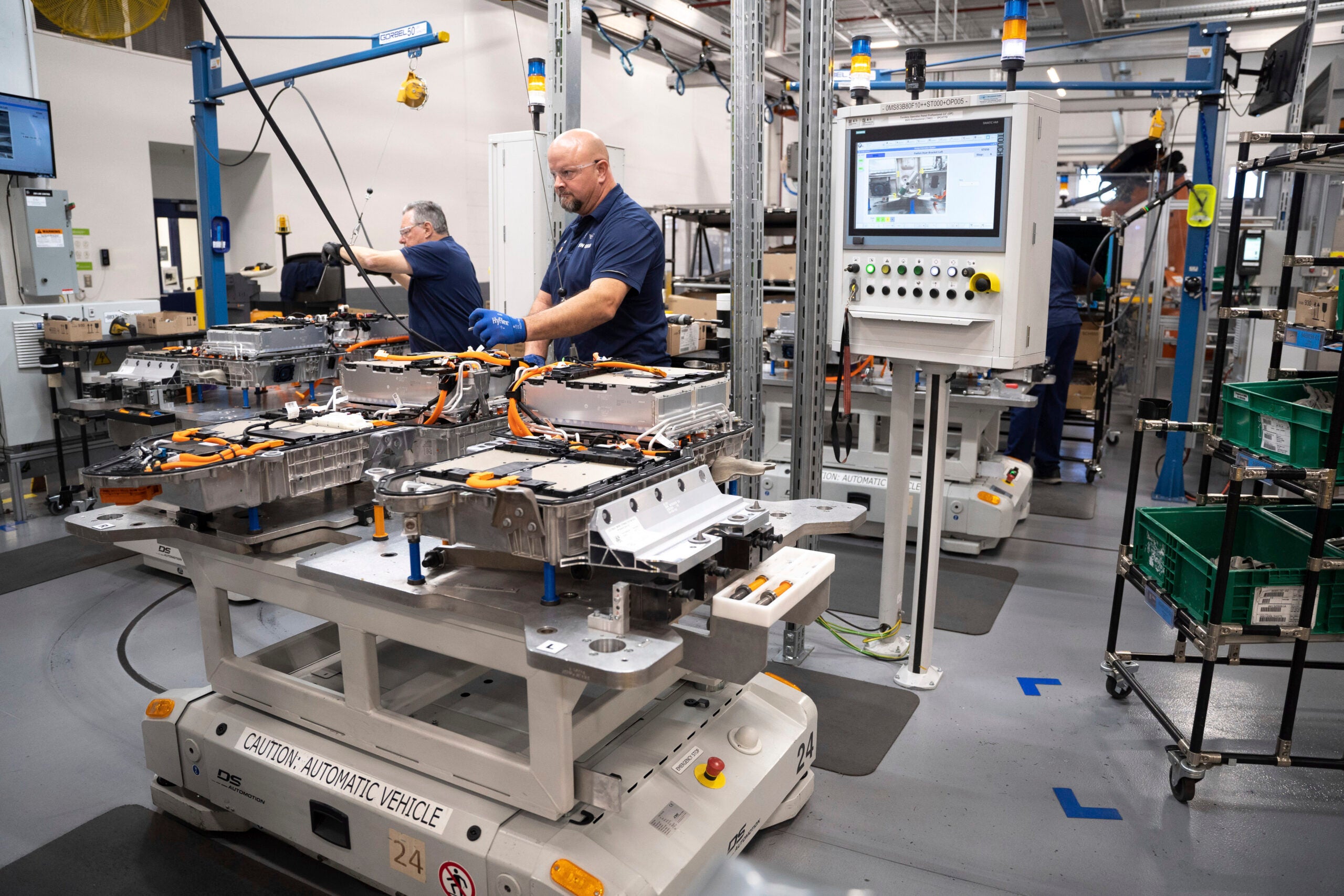Wisconsin farm groups say they’re hopeful the Biden administration will improve trade opportunities for agriculture.
U.S. Trade Representative Katherine Tai visited western Wisconsin Friday to tour an organic dairy farm and talk with local farmer groups about their trade needs.
The visit comes as Tai and other U.S. officials continue to move through a formal dispute process with Canada over dairy tariff-rate quotas. The system was introduced under the U.S.-Mexico-Canada Agreement (USMCA) and was seen as a way for producers in the United States to increase exports. But Canada notified importers last year that a percentage of the quota was reserved for Canadian processors, prompting a challenge from the Trump administration.
News with a little more humanity
WPR’s “Wisconsin Today” newsletter keeps you connected to the state you love without feeling overwhelmed. No paywall. No agenda. No corporate filter.
In an interview with WPR on Friday, Tai said opening trade opportunities for the dairy industry was key to winning Congressional support for USMCA.
“This action that we’ve taken on enforcement is really a demonstration of how trade agreements, that they’re more than just words on a page. That in order for them to have meaning they have to translate into opportunities, those commitments mean something,” Tai said.
She said part of settling the dispute with Canada comes down to a good relationship. Adding that the previous administration’s rhetoric around trade damaged the personal side of negotiations.
“The task that we have here now during the Biden administration is how do we build back our relationships, how do we not back down on advocating and advancing U.S. economic interests but how do we do this in a constructive way,” Tai said.
Joe Bragger is past president of the Wisconsin Farm Bureau Federation and a dairy farmer from Independence. He said Tai’s visit to Wisconsin speaks to the importance of agricultural exports.
“I have a great appreciation for (Tai’s) understanding of how we’re affected, especially as dairy farmers with the situation with Canada,” Bragger said.
He said he was also impressed by Tai’s understanding of how the European Union’s effort to protect certain cheese names as geographical indicators could hurt the U.S. dairy industry.
But Bragger said Tai did not promise quick resolutions on these issues.
“I have a feeling that some of these trade discussions will certainly take longer than we’d like. But I’m glad to know that someone’s working on our behalf,” he said.
Howard Roth, pork producer from Wauzeka and past president of the National Pork Producers Council, said he also appreciated Tai’s efforts to talk with people who are directly affected by national trade decisions.
“As a farmer, I’m not worried about the politics side of it. We just need more trade. For my family, for my kids to be able to come into the pork industry, the biggest growth area for pork producers in the U.S. is trade,” Roth said.
He said around 25 percent of U.S. pork is exported, while domestic demand has grown very little over the last two decades.
Roth said he hopes the Biden administration also works to address the nation’s participation in the Trans-Pacific Partnership (TPP), a trade agreement with countries like Australia, Japan and Vietnam.
He said American pork exports are facing a steep tariff on exports to Vietnam, the top importer of U.S. pork, which could reduce sales.
“So for me, it’s extremely important to get back into the TPP or to get that tariff reduced,” Roth said.
Wisconsin Public Radio, © Copyright 2025, Board of Regents of the University of Wisconsin System and Wisconsin Educational Communications Board.

